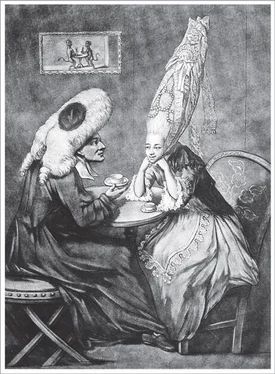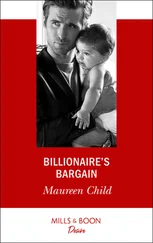Bill Bryson - At Home
Здесь есть возможность читать онлайн «Bill Bryson - At Home» весь текст электронной книги совершенно бесплатно (целиком полную версию без сокращений). В некоторых случаях можно слушать аудио, скачать через торрент в формате fb2 и присутствует краткое содержание. Жанр: Старинная литература, на английском языке. Описание произведения, (предисловие) а так же отзывы посетителей доступны на портале библиотеки ЛибКат.
- Название:At Home
- Автор:
- Жанр:
- Год:неизвестен
- ISBN:нет данных
- Рейтинг книги:4 / 5. Голосов: 1
-
Избранное:Добавить в избранное
- Отзывы:
-
Ваша оценка:
- 80
- 1
- 2
- 3
- 4
- 5
At Home: краткое содержание, описание и аннотация
Предлагаем к чтению аннотацию, описание, краткое содержание или предисловие (зависит от того, что написал сам автор книги «At Home»). Если вы не нашли необходимую информацию о книге — напишите в комментариях, мы постараемся отыскать её.
At Home — читать онлайн бесплатно полную книгу (весь текст) целиком
Ниже представлен текст книги, разбитый по страницам. Система сохранения места последней прочитанной страницы, позволяет с удобством читать онлайн бесплатно книгу «At Home», без необходимости каждый раз заново искать на чём Вы остановились. Поставьте закладку, и сможете в любой момент перейти на страницу, на которой закончили чтение.
Интервал:
Закладка:
In the end, Barnardo was found guilty of faking photographs and of claiming wrongly to be a doctor, but exonerated on all the more serious charges. Ironically, life in a Barnardo home was scarcely more attractive than life in the dreaded workhouses. Inmates were roused from bed at 5:30 a.m. and required to work until 6:30 in the evening, with short breaks for meals, prayers, and a little schooling. Evenings were devoted to military drills, classes, and more prayers. Any boy caught trying to escape was placed in solitary confinement. Barnardo didn’t merely recruit children, but snatched them off the streets in a spirit of “philanthropic abduction.” Every year about fifteen hundred of these boys were summarily shipped off to Canada to make room in the homes for more boys.
By the time of his death in 1905, Barnardo had taken in 250,000 children. He left the organization indebted to the tune of £250,000—a colossal sum.
III
We have spoken so far only of poor children, but well-to-do children had torments of their own to endure. These were torments of the sort that many of the starving poor would have been glad to get, to be sure, but they were torments nonetheless. Mostly they involved emotional adjustments and learning to live in a world that was shorn of affection. Almost from the moment of emerging from the womb, middle- and upper-class children in Victorian Britain were expected to be obedient, dutiful, honest, hardworking, stiff-upper-lipped, and emotionally self-contained. An occasional handshake was about as much physical warmth as one could expect after infancy. The typical home of the prosperous classes in Victorian Britain was, in the words of one contemporary, an outpost of “cold, harsh and emphatically inhuman reserve which cuts off anything like that friendly, considerate, sympathetic intercourse which ought to mark every family relation.”
Well-off children often had to endure the hardships of character building. Isabella Beeton’s brother-in-law, Willy Smiles, had eleven children but set out breakfast for only ten, to discourage slowness in arriving at the table. Gwen Raverat, daughter of a Cambridge academic, recalled in later life how she was required to sprinkle her daily porridge with salt, instead of the glistening heaps of sugar her parents enjoyed, and forbidden jam with her bread on the grounds that anything so flavorsome would wreak havoc upon her moral fiber. A contemporary, of similar background, recorded wistfully of the food served to her and her sister through childhood: “We had oranges at Christmas. Marmalade we never saw.”
With the crushing of taste buds came also a curious respect for the character-building powers of fearfulness and dread. Extremely popular were books that prepared young readers for the possibility that death could take them at any moment, and if it didn’t get them it would almost certainly get their momma, papa, or favorite sibling. Such books always stressed how wonderful heaven was (though it seemed also to be a place without jam). The intention ostensibly was to help children not to be frightened of dying, though the effect was almost certainly the opposite.
Other literary works were designed to make sure children understood what a foolish and unforgivable offense it was to disobey an adult. A popular poem, “The Dreadful Story of Pauline and the Matches,” recounted the tale of a little girl who failed to heed her mother’s gentle invocation not to play with matches. As the poem put it:
But Pauline would not take advice ,
She lit a match, it was so nice!
It crackled so, it burned so clear,—
Exactly like the picture here
She jumped for joy and ran about ,
And was too pleased to put it out .
Now see! Oh see! What a dreadful thing
The fire has caught her apron-string;
Her apron burns, her arms, her hair;
She burns all over, everywhere .
To make sure there was no possibility of misinterpretation, the poem carried a vivid illustration showing a young girl engulfed in a ball of flame, on her face a look of profoundest consternation. The poem concludes:
So she was burnt with all her clothes
And arms and hands, and eyes and nose;
Till she had nothing more to lose
Except her little scarlet shoes;
And nothing else but these was found
Among her ashes on the ground .
“The Dreadful Story of Pauline and the Matches” was one of a series of poems by a German doctor named Heinrich Hoffmann, who wrote them originally as a way of encouraging his own children to follow lives of rigid circumspection. Hoffmann’s books were highly popular and went through many translations (including one by Mark Twain). All followed the same pattern, which was to present children with a temptation difficult to refuse, then show them how irreversibly painful were the consequences of succumbing. Almost no childhood activity escaped the possibility of corrective brutality in Hoffmann’s hands. In another of his poems, “The Story of Little Suck-a-Thumb,” a boy named Conrad is warned not to suck his thumbs because it will attract the attention of a ghoulish figure known as the great tall tailor, who always comes “To little boys that suck their thumbs.” The poem continues:
And ere they dream what he’s about
He takes his great sharp scissors out .
And cuts their thumbs clean off—and then
You know, they never grow again .
Alas, Little Suck-a-Thumb ignores the advice and discovers that punishment in Hoffmann’s world is swift and irreversible:
The door flew open, in he ran ,
The great red-legged scissor-man
Oh! children, see! the tailor’s come
And caught our little Suck-a-Thumb
Snip! Snap! Snip! the scissors go;
And Conrad cries out—Oh! Oh! Oh!
Snip! Snap! Snip! They go so fast;
That both his thumbs are off at last .
Mamma comes home; there Conrad stands ,
And looks quite sad, and shows his hands .
“Ah!” said Mamma, “I knew he’d come
To naughty little Suck-a-Thumb.”
For older children such poems may have been amusing, but for smaller children they must often have been—as they were intended to be—terrifying, particularly as they were always accompanied by graphic illustrations showing dismayed youngsters irreversibly in flame or spouting blood where useful parts of their body used to be.
Wealthier children were also often left to the mercy of servants and their private, peculiar whims. The future Lord Curzon, growing up as the son of a rector in Derbyshire, was terrorized for years by a semipsychotic governess who tied him in a chair or locked him in a cupboard for hours at a time, ate the desserts from his dinner tray, compelled him to write letters confessing to crimes that he hadn’t committed, and paraded him through the local village wearing a ridiculous smock and a placard around his neck announcing him as a “LIAR,” “THIEF,” or some other shameful condition that he had usually done nothing to merit. The experiences left him so traumatized that he couldn’t bring himself to tell anyone about them until he had grown up. Rather milder, but nonetheless dismaying, was the experience of the future sixth Earl Beauchamp, who was left in the clutches of a governess who was a religious fanatic; she required him to attend seven church services every Sunday and to fill the time between by writing essays about the goodness of God.
For many the ordeals of early childhood were a modest warm-up for the stress of life in private schools. Rarely can hardship have been embraced with greater enthusiasm than in the English private school in the nineteenth century. From the moment of arrival pupils were treated to harsh regimens involving cold baths, frequent canings, and the withholding from the diet of anything that could be remotely described as appetizing. Boys at Radley College, near Oxford, were so systematically starved that they were reduced to digging up flowerbulbs from the school gardens and toasting them over candles in their rooms. At schools where bulbs were not available, the boys simply ate the candles. The novelist Alec Waugh, brother of Evelyn, attended a prep school called Fernden that seemed to be singularly devoted to the ideals of sadism. On his first day there, his fingers were thrust into a pot of sulphuric acid to discourage him from biting his nails, and soon afterward he was required to eat the contents of a bowl of semolina pudding into which he had just vomited, an experience that understandably dimmed his enthusiasm for semolina for the rest of his life.
Читать дальшеИнтервал:
Закладка:
Похожие книги на «At Home»
Представляем Вашему вниманию похожие книги на «At Home» списком для выбора. Мы отобрали схожую по названию и смыслу литературу в надежде предоставить читателям больше вариантов отыскать новые, интересные, ещё непрочитанные произведения.
Обсуждение, отзывы о книге «At Home» и просто собственные мнения читателей. Оставьте ваши комментарии, напишите, что Вы думаете о произведении, его смысле или главных героях. Укажите что конкретно понравилось, а что нет, и почему Вы так считаете.












